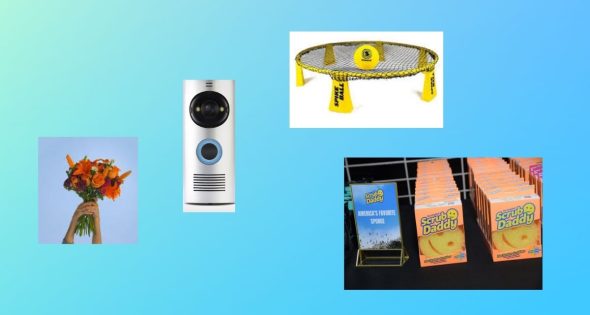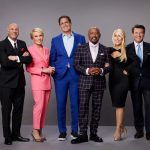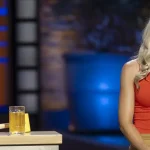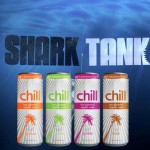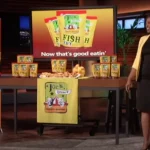Highlights
- In Shark Tank, the decision of the Sharks not to invest in a company does not guarantee its failure.
- Many products with no investment have gone on to become multi-million dollar success stories in the future.
- Scrub Daddy, Ring, and The Bouqs are just a few prime examples that left the Sharks wishing they’d said “yes.”
The Shark Tank TV show needs no introduction. Started in 2009, it has carved a niche for itself in the reality television series arena with a dedicated group of global viewers over the years.
Its global popularity can be ascertained from the fact that to date, there have been around 50 versions of the show worldwide, including hit editions in the USA, Australia, the United Kingdom, India, etc.
Over the years, Shark Tank has built a worldwide audience that is eager to watch bold entrepreneurs pitch to high-profile investors.
If we talk primarily about Shark Tank USA, the investors or the judges (popularly known as Sharks), each of them has become a household name in the country.
During the show’s long run of 16 successful seasons, they have witnessed thousands of pitches from a variety of entrepreneurs nationwide. But have they invested in all of them? The answer is absolutely not.
Why Shark Decisions Aren’t Always Right
Reflecting their business acumen and strong personalities, the Sharks assess every single angle of the product and pitch that comes in front of them, do their calculations, and then decide whether or not they should invest in it.
So, does it mean that their decisions are foolproof and correct? Have all the products they’ve invested in the past been successful, and the others been failures? The answer again is NO.
Shark Tank Deals That Sharks Regret Not Taking
There have been plenty of instances in the past when the rejected deals by the Sharks became huge successes later on, which made the Sharks regret it big time, and they even admitted it in public. Below is a list of deals the Sharks regret not taking or investing in.
1. Scrub Daddy – The Sponge That Made Millions
When asked about his biggest regret on not investing in a product on Shark Tank, Daymond John, in his appearance on The Drew Barrymore Show, revealed the name to be “Scrub Daddy.”
Often described as the second-most successful product that appeared on Shark Tank and got rejected, Scrub Daddy is a pathbreaking cleansing sponge that is helpful for cleaning the kitchen dirt.
Quick Facts
- Founder: Aaron Krause
- Investment Asked: $100K for 10% equity
- Product: Temperature-controlled smiley sponge for cleaning
- Sharks Interested: Lori Greiner, Daymond John, Kevin O’Leary
- Drama: Daymond called it a “stupid-looking little sponge” before its success
- Outcome: Over $900M in retail sales; one of Shark Tank’s biggest hits
Aaron Krause, founder of Scrub Daddy, came up to the Sharks with this cutely shaped sponge, with an offer of $100K for 10% equity.
Elaborating on his pitch, Krause described it as a kitchen scrubbing tool that completely changes its structure by adjusting to the water temperature.
The scrub cleanses using just water and no chemicals, causing no scratches. Except for Lori Greiner and Daymond John, the other Sharks, including Mark Cuban, Robert Herjavec, and Kevin O’Leary, were seen smiling and giggling throughout the pitch.
Little did they know that this product would make $1.3 billion in total sales in the coming years.
Nevertheless, Kevin made an offer of $100K for 50% of equity in the company, to which Krause replied, “You’re out.”
Following this, John proposed an offer of $50K for a 15% equity stake. But he had a condition that involved him getting into a joint partnership with Lori, which she politely declined.
Instead, Lori made her solo offer of $200 for a 20% equity stake, promised to get Aaron into infomercials right away, and take him to retail stores across the country within weeks.
Aaron was really delighted upon hearing this and instantly said yes to the deal.
Daymond admitted on The Drew Barrymore Show that what he thought was a “stupid-looking little sponge,” has hit it out of the park in the retail space, and that is his biggest investment regret.
2. Doorbot – From Rejection to a $1 Billion Amazon Deal
Jamie Siminoff, founder of Doorbot, now popularly known as Ring Video Doorbell Pro, came up with this product seeking $700K for a 10% equity stake.
Curious about the product? Well, as the name suggests, promoted as the first-ever product of this type, it’s a video doorbell built for the smartphone.
Quick Facts
- Founder: Jamie Siminoff
- Investment Asked: $700K for 10% equity
- Product: Smartphone-connected video doorbell
- Sharks Interested: None closed a deal
- Drama: All Sharks backed out over tech concerns
- Outcome: Acquired by Amazon for $1B and earns $577M annually
Despite the ingenious idea, the Sharks started backing out one after the other. Some expressed their concerns, stating that it’s a consumer device and that technology doesn’t seem promising, whereas others were unsure of its growth projection in the coming years.
“But soon after, Amazon bought Doorbot (now Ring) for over a $1 billion worth deal. As of 2023, the company had a net worth of $2.3 billion, which is the highest ever number of any company to have appeared on Shark Tank.”
3. The Bouqs Co. – From Passed Over to $88 Million Raised
John Tabis, an aspiring entrepreneur from Pittsburgh, came up with an offer of $258 for a 3% equity stake in his bouquet-selling company titled Bouqs.
Quick Facts
- Founder: John Tabis
- Investment Asked: $258K for 3% equity
- Product: Farm-to-table flower delivery service
- Sharks Interested: None during the show
- Drama: Barbara disliked the name; Kevin mocked the 6-day delivery
- Outcome: Robert Herjavec invested $24M post-show; raised $88M total
In his pitch, John described how the flowers were sourced directly from the farms and were intended to be given directly to the consumers, removing the involvement of any middlemen.
None of the Sharks showed any interest in the idea/company and started opting out of the deal one by one, citing the ordinary nature of the business.
Barbara Corcoran showed her disinterest to a level where she said she didn’t like the name of the brand and that it’s difficult to spell. Kevin O’Leary mocked the long six-day delivery process. Eventually, John walked out without getting any investment.
However, three years after his appearance on the show, Robert Herjavec contacted John for advice on flowers. He was looking for the same for his upcoming wedding, and ended up investing $24 million in his business. Since then, Bouqs has raised $88 million, thereby showcasing its true potential.
4. Spikeball – The Sport That Bounced Back
Pitching it as the “next Great American Sport,” Chris Ruder introduced Spikeball as a beach volleyball game involving two members on each team.
Quick Facts
- Founder: Chris Ruder
- Investment Asked: $500K for 10% equity
- Product: Portable trampoline-net game for 2-4 players
- Sharks Interested: Kevin O’Leary, Daymond John
- Drama: Daymond’s deal fell apart over Spider-Man co-branding
- Outcome: $19M annual revenue; $45M estimated net worth
The idea is not completely new; rather, it’s bringing an old toy back to life, which was removed from toy stores some years ago.
One Spikeball set includes a ball and a trampoline-like net, which is available on Amazon and the company website. It can be used for both a simple backyard game and a full-fledged competition with its supremely portable nature.
To make a lasting impression on the Sharks, he brought along four players who competed for a game of Spikeball with two members on each team.
None of the sharks seemed much interested except for Kevin and Daymond. Kevin offered $500K at a 9% interest rate for 10% of the company.
But it was Daymond John who locked the deal after a serious round of negotiations. His final offer was $500K for 20% equity.
However, the deal never closed owing to creative differences involving a Spiderman-Spikeball set, which Chris was completely against.
The incomplete deal didn’t seem to stop the success of Spikeball, which generated an annual revenue of $19 million by January 2023. Its estimated net worth is $45 million as of 2023.
Lessons for Entrepreneurs from Shark Tank’s Missed Deals
The judges on Shark Tank bring forth years of experience to the show and make calculated decisions based on what they perceive from the pitch presented to them.
However, many times, their instincts take precedence over their business acumen, which in turn leads them to make or opt out of a deal.
Whereas, there are instances when they get swayed away by what their fellow Sharks have to say. But this doesn’t guarantee success or failure for any company.
This is why it’s crucial that entrepreneurs accept rejections in stride and view them as a learning opportunity to look into the loopholes, if any.
If not, they should have faith and choose an alternative route like Doorbot (which chose Amazon) and just keep going. Sooner or later, success will come your way.
References
Guest Shark Biography, ABC Network
https://abc.com/cast/b002321b-f329-4386-b241-641603cf96ce
John Tabis, Crunchbase
https://www.crunchbase.com/person/john-tabis
Scrub Daddy’s famous sponge was rejected by a Fortune 500 company and forgotten in a box for years. It’s now a $220 million empire, Fortune, Kevin Sanchez Farez
https://fortune.com/2024/02/02/scrub-daddy-founder-interview-shark-tank-success-story/


